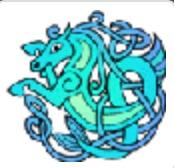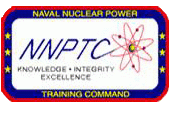- Posts: 15746
- Thank you received: 320
Tips for Job Hunting
- ScienceChic
-
 Topic Author
Topic Author
- Mountain Champion
-

Don’t Say You’re "Experienced" on Your Resume (and Other Words to Banish)
By Melanie Pinola
Nov 9, 2011
Final Cut: Words to Strike from Your ResumeIf you want your resume to be more effective and less generic, make sure every word on it counts. Forbes recommends striking common phrases like saying you're "experienced in [something]"; instead, show where your experience lies.
You can be "experienced" in something after you've done it once-or every day for the past 10 years. So drop this nebulous term and be specific. If, for example, you're a Client Report Specialist, using a phrase such as "Experienced in developing client reports" is both vague and redundant. But sharing that you "Created five customized weekly reports to analyze repeat client sales activity"-now that gives the reader a better idea of where exactly this so-called experience lies, with some actual results attached.
Hit the link below for more words to eliminate from that very important piece of paper, and if you're a master of the CV, let's hear your tips in the comments.
ForbesWoman
|11/04/2011
The average resume is chock-full of sorely outdated, essentially meaningless phrases that take up valuable space on the page. Eliminate them, and you’ll come off as a better, more substantial candidate—and your resume won’t smack of that same generic, mind-numbing quality found on everyone else’s.
Every word—yes, every word—on that page should be working hard to highlight your talents and skills. If it’s not, it shouldn’t be on there.
Career Objective
Experienced
Team Player
Dynamic
References Available Upon Request
http://lifehacker.com/5857432/how-to-ma ... pular=true
How to Make (and Sustain) a Good First Impression Every Time
By Whitson Gordon
Nov 8, 2011
People often say "you never get a second chance to make a first impression", and that's actually quite true—which is why it's so important to start on the right foot. In fact, one popular study showed that those impressions can form in just a few seconds. Not only that, but after they're formed, those impressions become pretty set in stone.
How to Make Sure Your First Impression Is a Good One
So, knowing that, how do you make the best first impression possible? Everyone's different, and while you don't want to be too formulaic, there are definitely a few things you'll want to keep in mind that should universally help show you in a positive light.
Be On Time:
Dress and Groom Yourself Accordingly:
Be Aware of Your Body Language:
Use Their Name:
Don't Talk About Yourself Too Much:
Don't Be Afraid to Show Your Flaws:
Be Prepared:
Make That Impression Last
The last step, of course, is keeping up that good impression. Whether you're turning that new acquaintance into a business contact, friend, or your boss, there are a few things you can do to make them remember you fondly.
Keep a Database of Contacts:
Touch Base Regularly:
Reciprocate:
http://www.businessnewsdaily.com/best-j ... ions-1774/
The Best Job Interview Questions You Should Ask
By Chad Brooks
13 SEP 2011
Question: Tell me about yourself. -- Arlene S. Hirsch, career and psychological counselor
"The 'tell me about yourself' question is still one of the best ways for an interviewer to evaluate a candidate. Since it is a question that is often asked, it is also one that the interviewer would expect a candidate to have prepared and rehearsed. If the candidate is surprised or unprepared, it tells the interviewer that the candidate didn’t do their homework. The way the candidate presents and organizes the information is also important. Well-prepared candidates will have researched the company, analyzed the job description, and organized their presentation in a way that reflects a good fit between the candidate and the position or company.
http://www.businessnewsdaily.com/best-j ... ions-1820/
Mind Your Business: Interview Questions That Tell All
By Jeanette Mulvey, BusinessNewsDaily Managing Editor
26 SEP 2011
Last week we ran a story on BusinessNewsDaily that got a lot of attention. It was called "The Best Interview Questions You Should Ask." But, to be honest, I didn't like any of them. If I were hiring someone to work for me, I'd ask a whole different set of questions that would tell me a lot more about what kind of employee I was getting than the standard "tell-me-about-yourself" stuff.
Here are my all-time-best, surefire, weed-out-the-losers-and-pretenders interview questions:
What's your favorite restaurant? Who cares, right? Wrong. Everyone loves food. If your prospective job candidate can't get excited telling you about his favorite place to eat, then you know you've got a dud on your hands. Whether it's KFC or Le Bernardin doesn't matter, if they can answer your question with enthusiasm, at least you know they have a pulse.
What reality show do you watch? The point is that the ability to engage in a little friendly chitchat is essential. Ninety percent of succeeding in a job is having a personality and communication style that lets you get along with your customers and co-workers.
What do you want to know about us? If this question leaves your candidate speechless, you'll know they haven't put a lot of thought into coming to work for you. If researching your company and learning about what you do hasn't inspired a few questions, then they haven't been thinking too hard about the job. And, that, right there, ought to send up a giant red flag.
http://www.businessnewsdaily.com/job-in ... tion-1978/
New Research Proves Looks Matter in Getting a Job
By David Mielach, BusinessNewsDaily Staff Writer
09 NOV 2011
It turns out that looks do matter when it comes to getting a job. According to research published in the Journal of Applied Psychology, people with facial disfigurement, birthmarks or scars are more likely to receive poor ratings in job interviews than people who do not have any noticeable facial marks.
According to Hebl and co-author Juan Madera, a professor at the University of Houston, most interaction in speaking and conversations takes place as people focus on the triangle formed by the mouth and eyes. This research was able to show that when people looked away from that facial triangle they forgot details about the conversation. Their research was confirmed as Hebl and Madera tracked the eye activity of interviewers in job interviews with job candidates who had facial marks or scars. When these interviewers looked outside the facial triangle, they recalled less about what the candidate was saying in the job interview.
"Now, more than ever, the illusions of division threaten our very existence. We all know the truth: more connects us than separates us. But in times of crisis the wise build bridges, while the foolish build barriers. We must find a way to look after one another as if we were one single tribe.” -King T'Challa, Black Panther
The truth is incontrovertible. Malice may attack it. ignorance may deride it, but in the end, there it is. ~Winston Churchill
Please Log in or Create an account to join the conversation.
- LOL
-

- Mountain Legend
-

- Posts: 6393
- Thank you received: 18
Edit a special tailored resume for each job. (Throw in the key words from the job requirements, they will be searching for those)
Research the company and what it does.
Listen, don't talk too much in the interview.
Prepare for a possible written test (review the basics)
If you want to be, press one. If you want not to be, press 2
Republicans are red, democrats are blue, neither of them, gives a flip about you.
Please Log in or Create an account to join the conversation.
- ScienceChic
-
 Topic Author
Topic Author
- Mountain Champion
-

- Posts: 15746
- Thank you received: 320
http://mashable.com/2011/11/20/job-interview-tips/
How To Take Control of Your Next Job Interview
by Erica Swallow
November 20, 2011
At the end of every job interview, you’ll encounter the inevitable question, “Do you have any questions for me?”
While it’s an oh-so-predictable event, many job candidates aren’t prepared to shine when they reach this final test in the interview. Failing to ask any questions or asking the wrong questions can send the wrong signals.
Stephanie Daniel, senior vice president of career management company Keystone Associates, spoke with us about her thoughts on how job interviewees can take control of their next job interview by asking the right questions. Read on for her thoughts on what to ask and which questions to avoid when it’s your turn to interrogate.
"Now, more than ever, the illusions of division threaten our very existence. We all know the truth: more connects us than separates us. But in times of crisis the wise build bridges, while the foolish build barriers. We must find a way to look after one another as if we were one single tribe.” -King T'Challa, Black Panther
The truth is incontrovertible. Malice may attack it. ignorance may deride it, but in the end, there it is. ~Winston Churchill
Please Log in or Create an account to join the conversation.
- ComputerBreath
-

- Mountain Legend
-

- Posts: 1208
- Thank you received: 20
I was also taught not to list references, but if asked be prepared to give that information.
These plus the other suggestions helped me get my job.
Please Log in or Create an account to join the conversation.
- bailey bud
-

- Mountain Legend
-

- Posts: 1849
- Thank you received: 0
I've found just about ever job I've held through colleagues/friends.
Blind CVs simply don't work out 90 percent of the time.
Please Log in or Create an account to join the conversation.
- mtnvicky
-

- Mountain Advisor
-

- Posts: 287
- Thank you received: 1
Please Log in or Create an account to join the conversation.
- bailey bud
-

- Mountain Legend
-

- Posts: 1849
- Thank you received: 0
Spelling is important
You mean like typing "ever" instead of "every?" (whoops)
Agree about doing research ---- I've known something about everyone I've interviewed with.
Please Log in or Create an account to join the conversation.
- ScienceChic
-
 Topic Author
Topic Author
- Mountain Champion
-

- Posts: 15746
- Thank you received: 320
http://www.businessnewsdaily.com/1809-j ... -2012.html
20 Ways to Jump Start Your Job Hunt in 2012
Chad Brooks, BusinessNewsDaily Contributor
20 Dec 2011
#1 on the list: Leverage the holidaysWe've written lots of stories about job hunting throughout 2011 and we got some pretty useful bits of job-hunting advice from experts in a variety of fields. Here are the top 20 pieces of business advice that you can use to start your 2012 job search:
While many job hunters take the holidays off to celebrate and recreate, Meyers said the season is a wonderful time to kick your search into high gear and, in doing so, gain a competitive advantage.
"Many job seekers don't realize how important it is to perform a search during these months," Myers said. "There is little-to-no competition. Companies are completing their budget planning for the next fiscal year, so it's a great time to get in front of hiring managers. And many executives have to fill openings early in the year or they may lose the budget for that position."
http://www.securitynewsdaily.com/facebo ... ers--1064/
Facebook Could Be a Liability for Job-Seekers
Aug 16, 2011 | 5:15 PM ET | By Chad Brooks
Michael Fertik, founder and CEO of Reputation.com, said job-seekers must face the reality that their Facebook page can make a first and last impression on potential employers.
"With the rise of social media sites, the Internet has become an unavoidable character reference," Fertik told TechNewsDaily. "What you post online gives potential employers insight into how you will fit into their company environment and into the role."
But privacy settings aren't always enough. A recent Columbia University study found that 94 percent of Facebook users accidentally revealed something to the public that they had intended to keep private. Other pieces of advice offered by Salpeter include: see article for more (One example: Salpeter suggests taking an audit of everything that’s ever led you to click Facebook's “Like” button. Those likes are visible to others – and could reveal unsavory tastes.)
"Now, more than ever, the illusions of division threaten our very existence. We all know the truth: more connects us than separates us. But in times of crisis the wise build bridges, while the foolish build barriers. We must find a way to look after one another as if we were one single tribe.” -King T'Challa, Black Panther
The truth is incontrovertible. Malice may attack it. ignorance may deride it, but in the end, there it is. ~Winston Churchill
Please Log in or Create an account to join the conversation.
- ScienceChic
-
 Topic Author
Topic Author
- Mountain Champion
-

- Posts: 15746
- Thank you received: 320
Inside the Recruiter’s Head: What He’s Really Asking You During the Interview
Jayne Mattson
January 15, 2012
By asking what I call “the question behind the question,” hiring managers have a better chance to making the right hiring decision. As job seekers, your task is to answer them honestly and fully. Here are 10 top questions that the interviewer might ask, along with the hidden agenda behind each one. Tread carefully — the way you approach the answer might tell more than what you actually say.
Or...you can do what this kid did applying to McDonald's!

From FB~Troublemakers
"Now, more than ever, the illusions of division threaten our very existence. We all know the truth: more connects us than separates us. But in times of crisis the wise build bridges, while the foolish build barriers. We must find a way to look after one another as if we were one single tribe.” -King T'Challa, Black Panther
The truth is incontrovertible. Malice may attack it. ignorance may deride it, but in the end, there it is. ~Winston Churchill
Please Log in or Create an account to join the conversation.
- Grady
-

- Mountain Legend
-

- Posts: 2915
- Thank you received: 3
mtnvicky wrote: Being a Technical Recruiter, I can definitely say that a good cover letter helps. Also, make sure you have the right keywords in your resume and cover letter that are in the job description you're looking at. Spelling is important !! Also, be careful what you have out on Facebook - employers do look at your FB page. Definitely research the company before the interview and have some good questions for them as well.
I hate overly long detailed resumes, I don't really care that you worked as a french fry machine operator 15 years ago. We do computer hardware break fix, so for example if you tell me you know SUN Micro-systems in your resume, you had better be prepared to give us specific models during the initial interview.
Obliviously we wouldn’t hire an entry level person to fill a high level server support position We hire and interview as much for “team fit” and troubleshooting processes as actual skill levels
Please Log in or Create an account to join the conversation.






